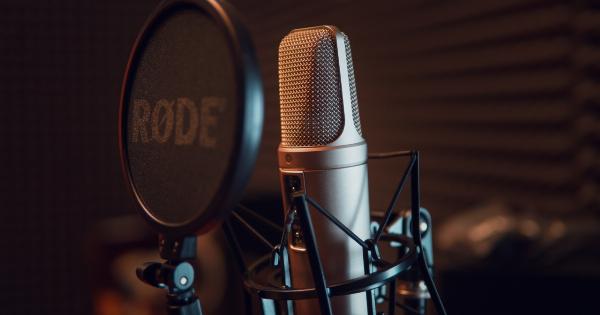Have you ever wondered why your voice sounds deeper in the morning compared to the rest of the day? This phenomenon is experienced by many individuals and can be attributed to various factors.
In this article, we will explore the science behind this intriguing occurrence and uncover the reasons why our vocal pitch tends to be lower during the early hours of the day.
1. The Effect of Sleep on Vocal Cords
One of the main reasons for the deeper voice in the morning is the effect of sleep on our vocal cords. During sleep, our muscles relax, including the ones in the throat and larynx.
This relaxation can lead to a slight swelling of the vocal cords, resulting in a lower vocal pitch when we wake up.
2. Reduced Fluid Intake Overnight
Another contributing factor to the deeper morning voice is the reduced fluid intake overnight. While we sleep, our bodies become dehydrated to some extent due to not drinking water for several hours.
Dehydration can cause the vocal cords to dry out, resulting in a deeper voice as they vibrate differently.
3. Accumulation of Mucus
During the night, mucus can accumulate on our vocal cords, leading to a slightly deeper voice in the morning. Mucus is a natural lubricant that helps protect and moisten the vocal cords.
However, when excess mucus builds up overnight, it can affect the vibrations of the vocal cords, resulting in a lower pitch.
4. Body and Vocal Warm-Up
When we wake up, our bodies and vocal cords are generally cold and stiff. Just like warming up our muscles before physical activity, our vocal cords also require some warming up to reach their optimal state.
As we engage in conversations and use our voices more throughout the day, they become more flexible and vibrate at a higher pitch.
5. Increased Effort to Project the Voice
In the morning, our voice may sound deeper simply because we are unconsciously putting more effort into projecting it. When we wake up, we are often groggy and our vocal cords might still be slightly swollen or dry.
To compensate for this, we naturally try to use more power to make ourselves heard, resulting in a lower vocal pitch.
6. Natural Circadian Rhythm
Our body’s natural circadian rhythm, or internal clock, also plays a role in the deeper morning voice. As we wake up, our body is transitioning from a state of rest to activity.
This transition can affect various bodily functions, including the pitch of our voice. As the day progresses and our body fully wakes up, our voice tends to return to its regular pitch.
7. Psychological Factors
Psychological factors such as morning grogginess or a relaxed state of mind can also contribute to the perception of a deeper voice in the morning.
When we are still feeling drowsy or more relaxed, our vocal cords may not be as tense as they are throughout the day. This relaxation can create the impression of a deeper voice.
8. Hormonal Influences
Hormonal influences can also impact the pitch of our voice, and these changes may be more prominent in the morning. Hormones such as testosterone can cause the vocal cords to lengthen and thicken, resulting in a deeper voice.
Testosterone levels are generally higher in the morning, which can contribute to the perception of a deeper vocal tone.
9. Environmental Factors
The environment we are in can have an impact on how our voice sounds, particularly in the morning. Indoor environments, especially bedrooms, tend to have lower humidity levels during the night.
This lower humidity can affect the vibrations of our vocal cords, leading to a perceived deeper voice in the morning.
10. Individual Variations
It’s important to note that individual variations also play a role in how our voice sounds in the morning.
Some people may experience a more significant drop in pitch due to the factors mentioned above, while others may not notice a significant difference at all. The unique characteristics and habits of our vocal apparatus can influence the depth of our voice in the morning.
Overall, the deeper voice we experience in the morning is a combination of physiological, environmental, and psychological factors.
From the effect of sleep on our vocal cords to dehydration and hormonal influences, these factors work together to create the slightly lower pitch we notice when we first wake up. While it may be intriguing to ponder over, the deeper morning voice is generally a normal and temporary occurrence that tends to resolve as we go about our day.































